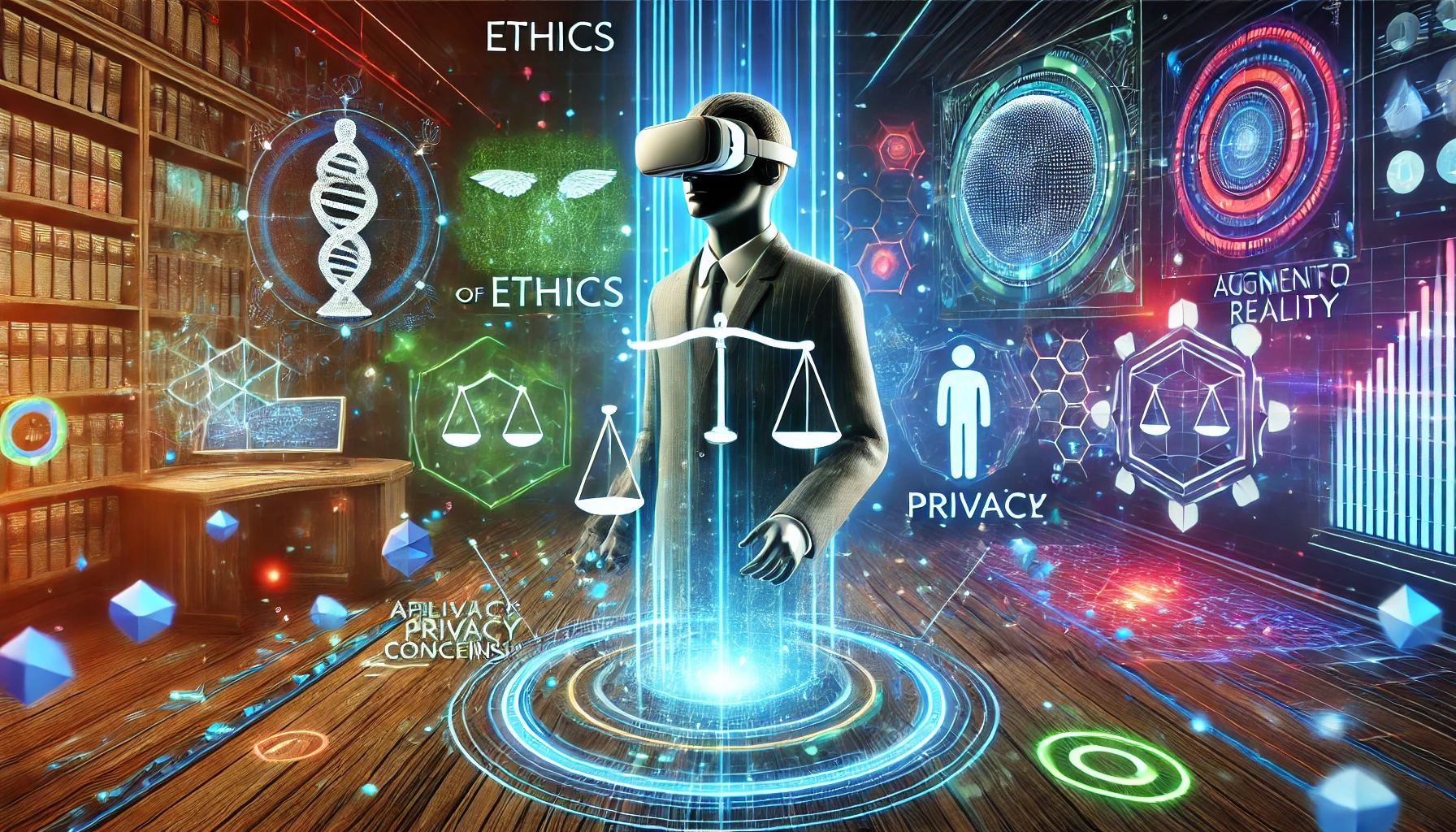The Ethical Implications of Augmented and Virtual Reality Technologies
Introduction
Augmented Reality (AR) and Virtual Reality (VR) are transforming the way we interact with the digital world. From immersive gaming to virtual training programs, these technologies are pushing the boundaries of what is possible. However, with great innovation comes great responsibility. As AR and VR become more prevalent, it’s essential to consider the ethical implications that accompany their use.
This article dives deep into the ethical challenges of AR and VR technologies, exploring topics like privacy, mental health, societal impact, and more.
Understanding AR and VR Technologies
What is Augmented Reality?
AR overlays digital content onto the real world, enhancing real-life experiences. Examples include apps like Pokémon GO and AR filters on social media platforms.
What is Virtual Reality?
VR immerses users in a fully digital environment, often requiring headsets like the Oculus Quest or HTC Vive. VR is widely used in gaming, education, and virtual meetings.
Privacy Concerns in AR and VR
Data Collection and Surveillance
AR and VR devices collect vast amounts of data, including location, movement, and biometric data. This raises questions about who owns and controls this data.
Risks of Data Misuse
- Third-party Access: Unauthorized access to user data can lead to breaches of privacy.
- Behavioral Tracking: Companies can use AR and VR data to track user habits, raising ethical concerns.
How to Address Privacy Issues
- Implement strong encryption protocols.
- Provide transparency in data usage policies.
- Educate users about privacy settings.
Mental Health Implications
Psychological Effects of Immersion
Prolonged use of VR can lead to:
- Simulation Sickness: A form of motion sickness caused by VR.
- Detachment from Reality: Difficulty distinguishing between virtual and real environments.
Impact on Social Connections
While VR can foster virtual interactions, it may also reduce face-to-face socialization, potentially leading to feelings of isolation.
Promoting Healthy Usage
- Set time limits for AR and VR use.
- Encourage breaks during immersive experiences.
- Develop VR content that fosters positive social interactions.
Societal Impacts of AR and VR
Accessibility and Inclusion
AR and VR can create opportunities for disabled individuals by providing new ways to interact with the world. However, the high cost of devices can exclude low-income users.
Ethical Design Practices
- Design with accessibility in mind.
- Ensure diverse representation in virtual spaces.
Avoiding Digital Divide
- Subsidize devices for low-income communities.
- Promote open-source AR and VR software.
Ethical Use of AR and VR in Education
Enhancing Learning Experiences
AR and VR provide immersive learning environments, enabling students to:
- Explore historical landmarks virtually.
- Conduct virtual science experiments.
Challenges in Educational Applications
- Content Bias: Ensure that educational material is accurate and unbiased.
- Privacy of Students: Protect student data when using AR and VR tools.
Best Practices for Ethical Use
- Partner with reputable content creators.
- Develop privacy policies for educational tools.
Commercial and Marketing Ethics
Manipulative Advertising
AR and VR enable highly personalized ads, which can manipulate consumer behavior.
Transparency in Advertising
- Clearly label ads in AR and VR environments.
- Avoid targeting vulnerable populations, such as children.
Ethical Advertising Guidelines
- Adhere to established marketing ethics.
- Regularly audit AR and VR ad campaigns for compliance.
Ethical Challenges in Gaming and Entertainment
Hyper-Realistic Violence
VR games often include intense, realistic depictions of violence, which can desensitize players.
Addiction Risks
The immersive nature of VR can lead to addictive behavior, particularly among younger users.
Mitigating Negative Impacts
- Develop age-appropriate content guidelines.
- Include features that promote breaks and time management.
Regulatory and Policy Considerations
Global Standards for AR and VR
Countries must collaborate to establish international standards that govern the ethical use of AR and VR.
Industry Self-Regulation
Tech companies should take the lead in:
- Conducting ethical reviews of AR and VR projects.
- Publishing transparency reports.
Public Awareness Campaigns
- Educate users about their rights.
- Highlight the ethical implications of AR and VR technology.
Conclusion
AR and VR technologies hold immense potential to revolutionize our world, but with this power comes responsibility. By addressing privacy concerns, promoting mental health, and fostering inclusion, we can ensure that these technologies are used ethically. The future of AR and VR depends on the collective efforts of developers, policymakers, and users to create a digital world that is innovative, inclusive, and responsible.
FAQs
1. What are the main ethical issues with AR and VR?
Privacy concerns, mental health effects, and societal inequalities are among the top ethical issues.
2. How can AR and VR benefit education?
They create immersive learning environments, allowing students to explore and experiment in ways not possible with traditional methods.
3. Is data collected by AR and VR devices secure?
It depends on the platform. Users should look for devices with strong encryption and clear data usage policies.
4. What steps can companies take to ensure ethical use of AR and VR?
Adopt transparent policies, conduct ethical reviews, and design with inclusivity and accessibility in mind.
5. Are there global regulations for AR and VR technologies?
Currently, regulations vary by country, but international standards are needed to address ethical challenges globally.
___________________________________________________________________________________________________
Please don’t forget to leave a review.
on Techcyclohub
___________________________________________________________________________________________________
Book Recommendations
- “Augmented Reality and Virtual Reality: Empowering Human, Place and Business“ by M. Claudia tom Dieck and Patrick Hyun Soo Kim
Explores AR and VR technologies and their broader impacts. - “The Ethics of Emerging Media” by Bruce E. Drushel and Kathleen German
Addresses ethical considerations of emerging media, including AR and VR. - “Virtual Reality: Ethics and Risks” by Lucía García and John Perritano
A detailed look into the societal and ethical challenges posed by virtual environments. - “Augmented and Virtual Reality: The Promise and Peril of Immersive Technologies” by M. Aaron Roy and Susan Caulfield
Analyzes the transformative potential of AR/VR alongside ethical risks. - “The Virtual Future: Ethics and Values in the Digital Age” by C. Daniel Howard
Discusses the values that should guide the development of immersive technologies.








